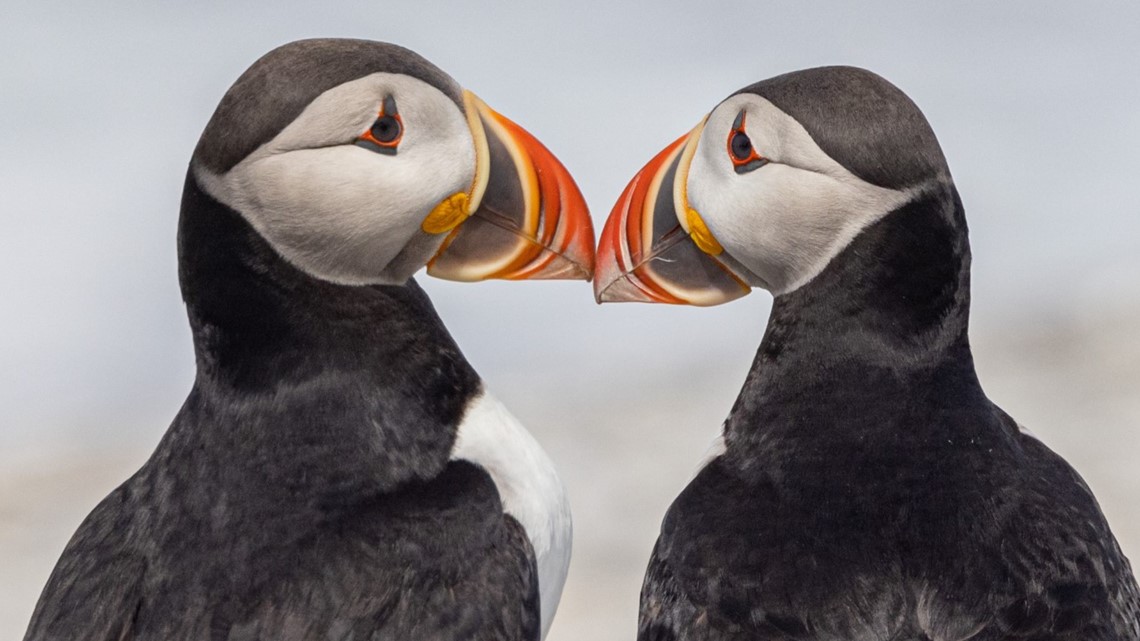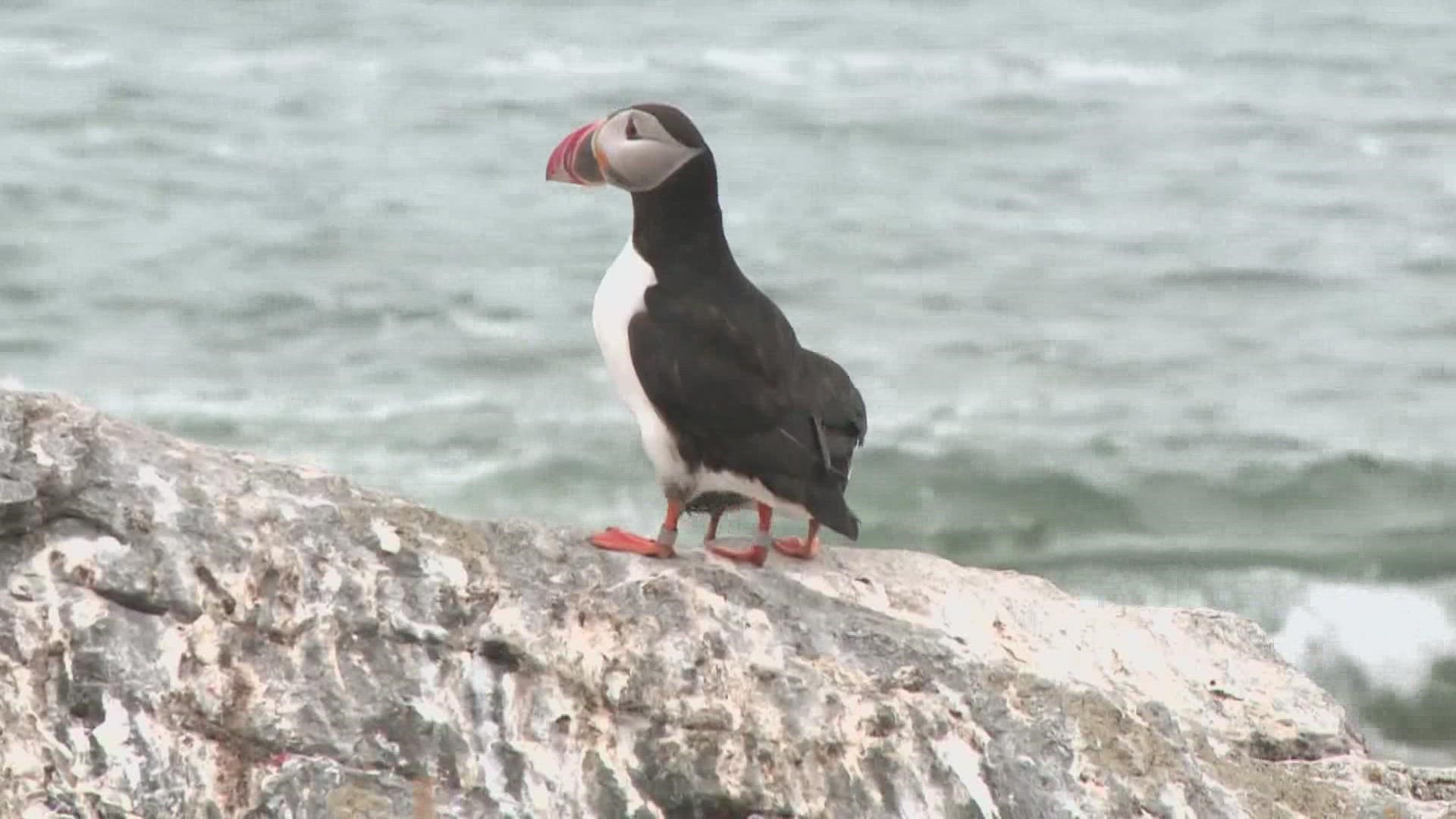ST GEORGE, Maine — The island is small, rocky, remote, and alive with birds. Common, Arctic, and Roseate terns and black-backed gulls squawk and cry as they circle and dive over the island.
Many of those birds nest and lay eggs in the low bushes on Eastern Egg Island off the coast of St. George.
The other birds who live there nest in burrows in the rocks. And, they are the star attractions of the island.
Atlantic puffins, which are cold water birds, have repopulated on the island each summer for decades thanks to an experiment started nearly 50 years ago to reintroduce puffins to the island.
That project worked so well that researchers for the National Audubon Society say there are now more than 100 nesting pairs of puffins on the island in summer.


“The puffins in the Gulf of Maine and [on] Eastern Egg Rock are generally doing OK,” Don Lyons, Audubon’s director of conservation science for the Seabird Institute, said.
“The number of adult puffins we see year after year is increasing since they were restored here," Lyons added.
But Lyons cautions that while the puffins are seeming to thrive now, climate change is threatening the birds. Warmer ocean waters make it harder for the birds to get the fish they need to feed themselves and feed the chicks in those rocky burrows.
"We’ve seen years, especially when heat is intense, [where] puffins really struggle to find enough food to feed their chicks,” Lyons said.
He says those fish have preferred temperature ranges, and as the water warms up, the fish seek deeper, colder water. That means puffins may need to fly farther and dive deeper to get the fish they need to survive.
All that, Lyons says, can lead to fewer chicks, which in turn poses long-term risks to healthy puffin populations.
“So, we are seeing red flags. Not to the point where we see impending doom, but it’s concerning. It’s a wake-up call to us to better manage climate change to be able to hold on to these rare and threatened species in the gulf,” Lyons added.

